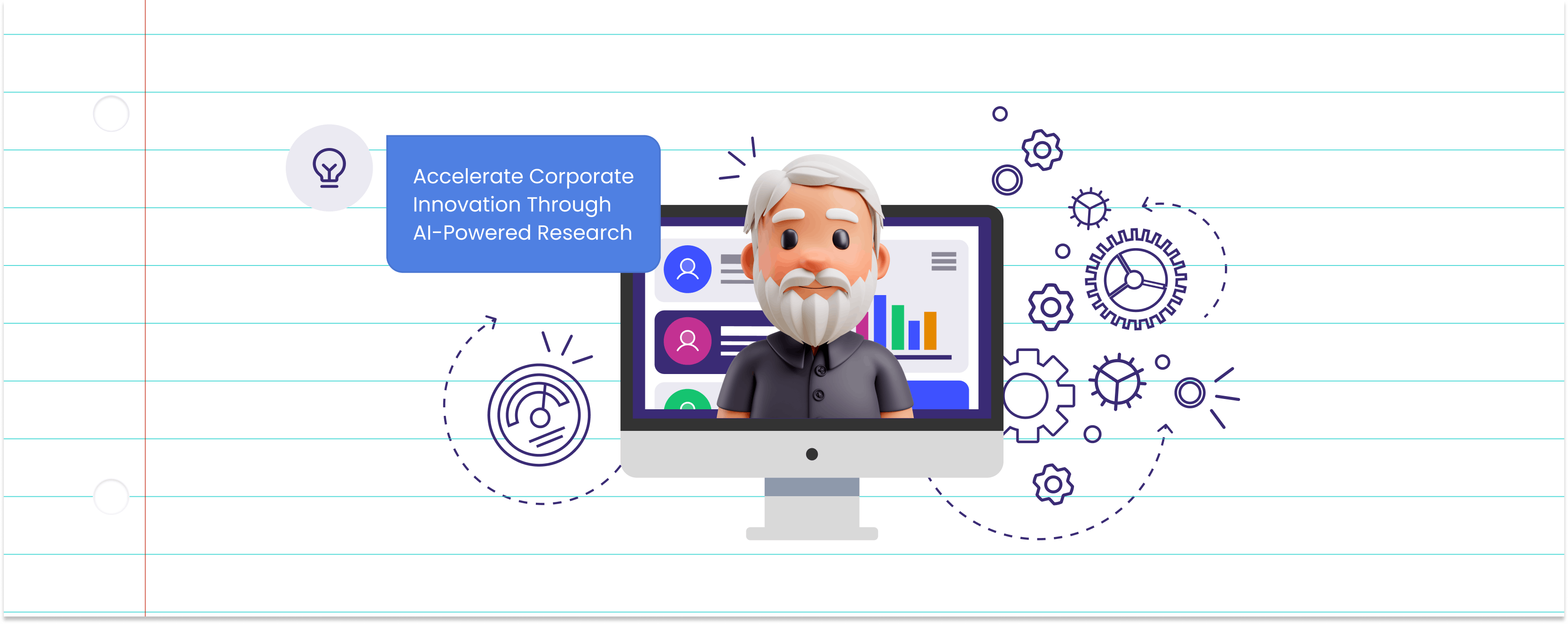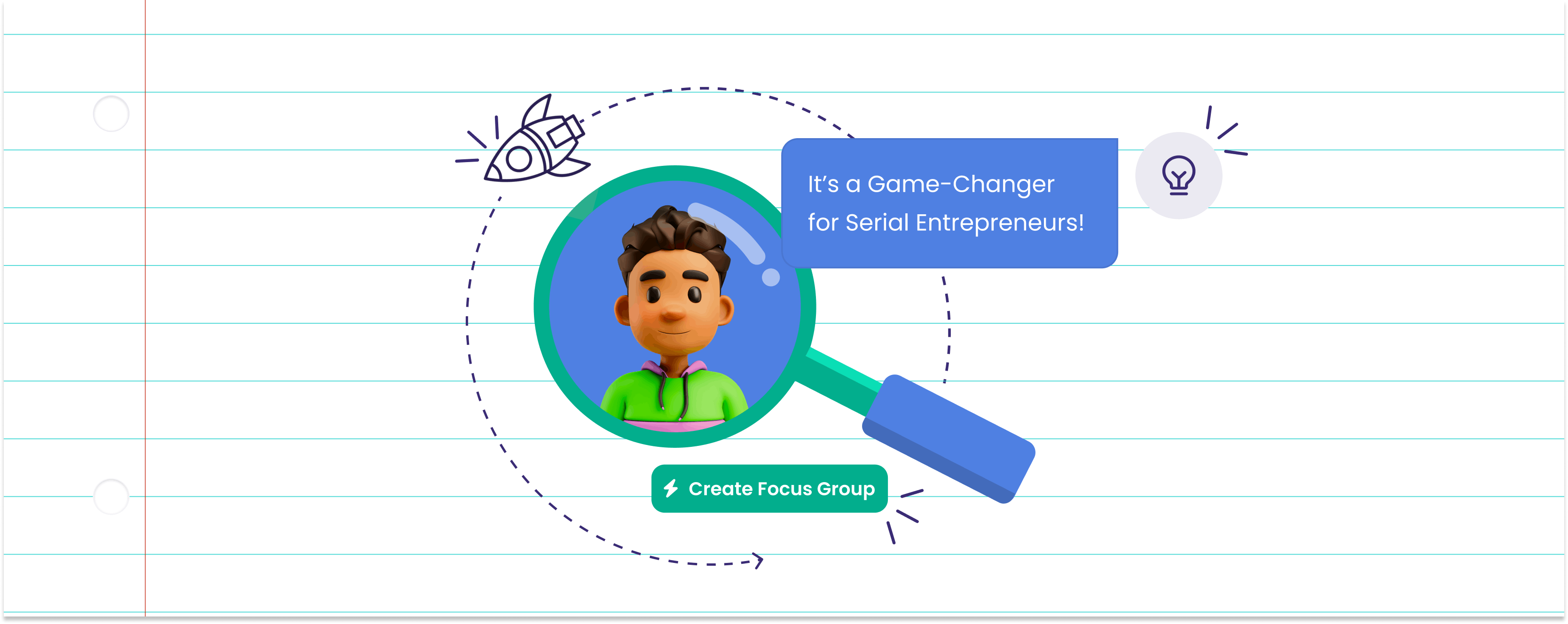
The Pitfalls of Traditional Focus Group Recruitment – And How AI Can Help
Focus groups have long been a trusted method for gathering in-depth insights into consumer behaviours and preferences. They provide a platform for rich discussion, uncovering the "why" behind the "what." However, the process of recruiting participants and conducting sessions can present numerous challenges, from logistical hurdles to participant bias. These issues can hinder the effectiveness of even the best-planned research.
While traditional focus groups remain incredibly valuable, AI-powered alternatives are emerging as a complementary tool that can alleviate many of these pain points. Below, we explore the common challenges of focus group recruitment and why AI can serve as a helpful addition to your research toolkit.
1. Recruiting the Wrong Participants
The success of a focus group hinges on finding participants who are genuinely relevant to the research topic. Problems often arise when:
- Participants lack knowledge or familiarity with the product or topic.
- Overly positive participants dominate the conversation, leaving little room for balanced critique.
Traditional focus groups rely heavily on recruitment agencies or databases, which can sometimes result in mismatches. AI tools, like YourRoom, allow you to specify exactly who you want in the room, because you can control every element of each persona.
2. Group Composition Issues
Creating a group with the right mix of diversity and commonality is essential but tricky:
- Groups that are too similar lack diverse perspectives, which can lead to repetitive or unhelpful insights.
- Groups that are too different struggle to find common ground, making it harder to identify actionable trends.
Traditional methods can achieve this balance but require careful planning and expertise. Again, by using YourRoom you can specify participants similarities and differences, to ensure a rich mixture of answers to your questions.
3. Participant No-Shows
Even the most meticulously planned focus group can falter due to no-shows. Despite reminders and confirmations, life happens, and participants may fail to turn up. Over-recruiting can mitigate this, but it adds to costs.
AI-powered focus groups eliminate this issue.
The Pitfalls of Traditional Focus Group Recruitment – And How AI Can Help
Focus groups have long been a trusted method for gathering in-depth insights into consumer behaviours and preferences. They provide a platform for rich discussion, uncovering the "why" behind the "what." However, the process of recruiting participants and conducting sessions can present numerous challenges, from logistical hurdles to participant bias. These issues can hinder the effectiveness of even the best-planned research.
While traditional focus groups remain incredibly valuable, AI-powered alternatives are emerging as a complementary tool that can alleviate many of these pain points. Below, we explore the common challenges of focus group recruitment and why AI can serve as a helpful addition to your research toolkit.
1. Recruiting the Wrong Participants
The success of a focus group hinges on finding participants who are genuinely relevant to the research topic. Problems often arise when:
- Participants lack knowledge or familiarity with the product or topic.
- Overly positive participants dominate the conversation, leaving little room for balanced critique.
Traditional focus groups rely heavily on recruitment agencies or databases, which can sometimes result in mismatches. AI tools, on the other hand, offer a way to pre-screen participants based on their actual behaviours or interests, increasing the likelihood of a productive discussion.
2. Group Composition Issues
Creating a group with the right mix of diversity and commonality is essential but tricky:
- Groups that are too similar lack diverse perspectives, which can lead to repetitive or unhelpful insights.
- Groups that are too different struggle to find common ground, making it harder to identify actionable trends.
Traditional methods can achieve this balance but require careful planning and expertise. AI tools can enhance this process by analysing demographic and psychographic data to assemble groups that strike the right balance, saving time and effort.
3. Participant No-Shows
Even the most meticulously planned focus group can falter due to no-shows. Despite reminders and confirmations, life happens, and participants may fail to turn up. Over-recruiting can mitigate this, but it adds to costs.
AI-powered focus groups, particularly those conducted virtually, eliminate this issue. Participants can engage at their convenience, ensuring higher participation rates without the need for over-recruitment.
4. Online Recruitment Woes
Recruiting participants for online focus groups can present unique challenges:
- Spam applications and low-quality responses dilute the pool.
- It can be tough to find enough qualified participants, especially for niche topics.
AI tools simplify this process by using advanced algorithms to filter out unqualified candidates and ensure that only relevant, engaged participants are selected.
5. Unclear or Misleading Participant Motivations
Human motivations are complex, and participants often unintentionally misrepresent their preferences:
- Unconscious lying occurs when people rationalise their actions in ways that don’t reflect their actual behaviours.
- Polite lies arise when participants give responses they believe moderators want to hear.
- Traditional moderators are skilled at probing deeper, but with an AI focus groups you do not need to worry about human motivations.
6. The Unnatural Focus Group Setting
Traditional focus groups can feel artificial, with participants asked to share personal thoughts in front of strangers. This environment can lead to guarded responses or surface-level insights.
While AI-powered platforms can’t fully replicate the value of face-to-face interactions, they can reduce these pressures. Virtual or asynchronous sessions allow participants to respond more thoughtfully and candidly, fostering a different type of authenticity.
7. Bias in Responses
Bias is a perennial issue in focus groups:
- Social desirability bias leads participants to offer responses they think will be socially acceptable.
- Groupthink can occur when dominant personalities influence others.
- Moderator bias can subtly shape outcomes through leading questions or body language.
While there are of course issues with AI and bias (that's a whole other blog topic)! but the human element of bias is removed with AI focus groups.
Conclusion
Traditional focus groups remain a powerful tool for understanding consumer behaviour. They provide nuanced, human perspectives that are difficult to replicate with any other method. However, their challenges—from recruitment headaches to biases and time constraints—can limit their efficiency and scalability.
AI-powered focus groups are not a replacement but a valuable addition to the research process. They address logistical and analytical pain points, making it easier to reduce costs, and uncover deeper insights. Together, traditional and AI-driven approaches can offer a balanced, modern strategy for market research that is both human and efficient.



